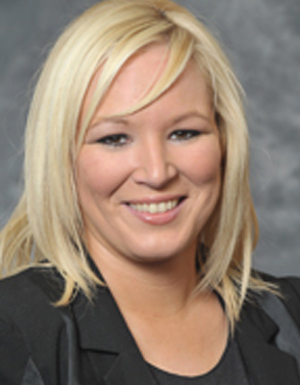 We need simpler and more locally responsive agricultural and fisheries policies, says Ireland’s new Department of Agriculture and Rural Development (DARD) Minister Michelle O’Neill
We need simpler and more locally responsive agricultural and fisheries policies, says Ireland’s new Department of Agriculture and Rural Development (DARD) Minister Michelle O’Neill
The European Union exerts a strong influence on the fortunes of our local agricultural, fishing and agri-food industries.
Over the coming months, formal proposals for the reform of the EU Common Agricultural Policy and EU Common Fisheries Policy will have a key bearing on the future success of these industries over the coming decade.
This week, I attended the EU Agriculture and Fisheries Council in Brussels where the EU Commission’s legislative proposals for the reform of the Common Fisheries Policy (CFP) were tabled for initial discussion and debate.
The outcome of this final policy will have a strong impact on the future success of our fishing industry, which is why I am determined to ensure the views of the local industry are strongly represented at the heart of Europe.
Our fishing sector has an important role to play in supporting the coastal communities, not only through direct employment on fishing boats but also in providing hundreds of jobs in fish processing plants and support services. The estimated total value of fish landed by vessels in the north during 2010 was approximately £35m, illustrating the economic importance of this sector.
The Commission’s latest proposals on CFP reform focus on fishing at levels that will deliver Maximum Sustainable Yield (MSY). In my view, this is a desirable position, but given our dependence in the north of Ireland on mixed fisheries, flexibility is needed in the pace at which we move towards MSY for each stock within such fisheries.
I will champion the case for greater autonomy to develop fisheries management measures at regional sea level that exploit local knowledge of fisheries managers and the fishing industry. I also want an overhaul of the current quota system to make it more transparent whilst retaining fishing opportunities for coastal communities.
These and other issues within the reform of the CFP will raise significant challenges and, in the years to come, have a significant impact on fisheries here. We must work together to try to shape the new policy in the best way we can. I want to see a fisheries sector here which is sustainable, profitable and maximises its economic contribution locally and I look forward to working with industry representatives and other key stakeholders in working towards this.
Turning attention to the Common Agriculture Policy (CAP), this brings somewhere in the region of £300m per annum into our local rural economy. In the forthcoming CAP reform discussions, it is absolutely crucial that we retain this level of commitment, along with the regional flexibility to deploy funding in a way that best addresses the long-term needs of our industry.
I will be pushing for greater simplification of the EU administrative processes which have been overly bureaucratic and an onerous burden for farmers and the implementing authorities alike.
This week in Brussels I stressed to the Commission the importance of these key objectives for our local farming community.
Broadening our influence in Europe also means building relationships with other key players beyond the EU Commission.
The European Parliament will also have a central role in the forthcoming reform of EU agriculture and fisheries policies. I am keen to work closely with all our MEPs, north and south, to maximise our influence and impact in Europe and have already opened a constructive dialogue with them for this purpose.
Our relationship with Europe is critical in the months and years ahead. We need a strong voice at the heart of the EU decision making-machine that can articulate and fight for our distinctive needs. I am determined to fulfil that role and will continue to press Brussels for the best deal that I can get for our farmers, fisherman and rural communities alike.